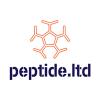Help! I seem to have had an acute visual memory enhancement episode of unprecedented intensity and I'm worried that receptor burnout is a distinct near term possibility. (Mods, I'm happy to put this in another thread, but given the broad nature of the event, this one seemed most appropriate.)
Questions: (1) What do you suppose I did, on a neurophysiological level, to bring this about? (2) Is there any way we can tame this dragon, so we can harness it for productive purposes, without risking burnout?
Background: I have a history of vivid visualization, mostly as a response to snorting betaNGF. However, I haven't snorted in about 2 weeks. Moreover, the visualization is of things that could exist, but don't; they are physically plausible syntheses similar to lucid dreams, as opposed to memories. My visual memory, by contrast, is certainly not what it was, and was never that great to begin with. But suddenly, I seem to have been caught between visually perceiving the present, remembering visual experiences from the recent past (seconds to hours), and peering a few minutes into the visual future based on an extrapolation my present locomotive intentions. It's starting to wear off, but initially it was so severe that I could feel myself staggering, struggling to fix myself in the present, while my head was moving back and forth in time.
Summary: I must have consumed a synergistic concoction... but what? Here's what I ate today: 100g dark chocolate with hazelnuts, eggs, corn, barley, beets, radishes, cabbage, red bell pepper, kidney beans, cheddar cheese, onions, carrots, button mushrooms, soy beans, mango, and blueberries. This is on top of 280 g (over half a pound!) of mixed nuts yesterday, which tends to suppress my visual memory.
A while after eating all this, when my stomach was no longer full, I took: Swanson magnolia extract (400 mg, 90% honokiol), Now choline & inositol (250 mg each), Now Curcubrain (400 mg Longvida), Niagen (125 mg nicotinamide riboside), and Now cat's claw (500 mg uncaria tomentosa).
Of all these items, none are atypical for me, except for the cat's claw, which was my first dose. About 10 minutes after taking the pills, I started to feel dizzy, but I didn't panic because I'd read that some people experience this. I had simply decided to take it because I had read that it's one of the most potent brain plaque disaggregators available from traditional medicine, and a friend of mine had used it to help him recover from cancer. There's nothing that I read which indicated any particular short term effect, apart from dizziness, headaches, and a reduction of tinnitus (all of which I experienced, but could be placebo). But I didn't research it very closely, so perhaps I missed the study where it explains what happened to me. The visual memory enhancement smacks of serotonergic effects, but there was no particular enhancement of artistic cognition, as I would expect from other seratonin agonists such as Longvida.






















































